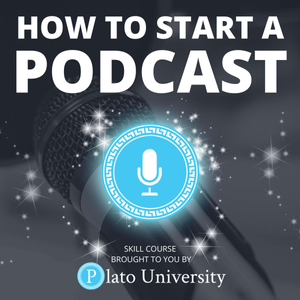
A Kudzu Haven for Crop Stealing Scavengers: The Mustard Seed (Matt 13:31-32; Mark 4:30-32; Luke 13:18-19; Gos. Thom. 20)
08/08/21 • 84 min
As one of only three quadruply attested parables in the Gospel Tradition, the Mustard Seed describes the transformational growth of what Jesus calls the smallest of all the seeds. Season one’s final episode begins with a lighthearted quiz before moving on to examine the various differences between the story’s four extant versions. In the process of doing so Mark and Lee discover it is possible to understand the Mustard Seed both as a similitude and a parable proper with distinct meanings. Though reading the story as a parable proper presents readers with difficult existential challenges, Dr. Proctor prefers this approach on the grounds it enhances the story’s aesthetic and yields a more timely meaning for our contemporary situation.
As one of only three quadruply attested parables in the Gospel Tradition, the Mustard Seed describes the transformational growth of what Jesus calls the smallest of all the seeds. Season one’s final episode begins with a lighthearted quiz before moving on to examine the various differences between the story’s four extant versions. In the process of doing so Mark and Lee discover it is possible to understand the Mustard Seed both as a similitude and a parable proper with distinct meanings. Though reading the story as a parable proper presents readers with difficult existential challenges, Dr. Proctor prefers this approach on the grounds it enhances the story’s aesthetic and yields a more timely meaning for our contemporary situation.
Previous Episode

Parabolic Polyvalency Part 2: Filling the Hungry with Good Figs in Luke 13:6-9
In "Parabolic Polyvalency Part 2," Mark and Lee offer a second reading of Luke's story about the supposedly "barren" fig tree. The episode begins with an examination of the Third Gospel's largely negative presentation of money and the wealthy, and uses it to suggest a novel approach to the parable's content. Of critical importance is the following question: "What if the fig tree really isn't barren?"
Next Episode

The Fifth “W:” Mark 4:10-13
Who? What? When? Where? Why? In season two's first episode, Lee and Dr. Mark address a very important question: Why did Jesus speak in parables? In order to provide an answer, they examine a critical passage scholars commonly refer to as a the "Parables Theory:" Mark 4:10-13. While nearly all versions of the Bible translate the first word in the Greek text of v. 12 with the English gloss "so that" or "in order that," Dr. Mark explains why doing so is problematic. He then offers an alternative approach to the verse that allows for understanding Jesus' parables as readily accessible heuristic devices that facilitate public learning by making his deeply existential topics comprehensible for everyone.
If you like this episode you’ll love
Episode Comments
Generate a badge
Get a badge for your website that links back to this episode
<a href="https://goodpods.com/podcasts/stories-for-the-waiting-room-670904/a-kudzu-haven-for-crop-stealing-scavengers-the-mustard-seed-matt-1331-88635620"> <img src="https://storage.googleapis.com/goodpods-images-bucket/badges/generic-badge-1.svg" alt="listen to a kudzu haven for crop stealing scavengers: the mustard seed (matt 13:31-32; mark 4:30-32; luke 13:18-19; gos. thom. 20) on goodpods" style="width: 225px" /> </a>
Copy




